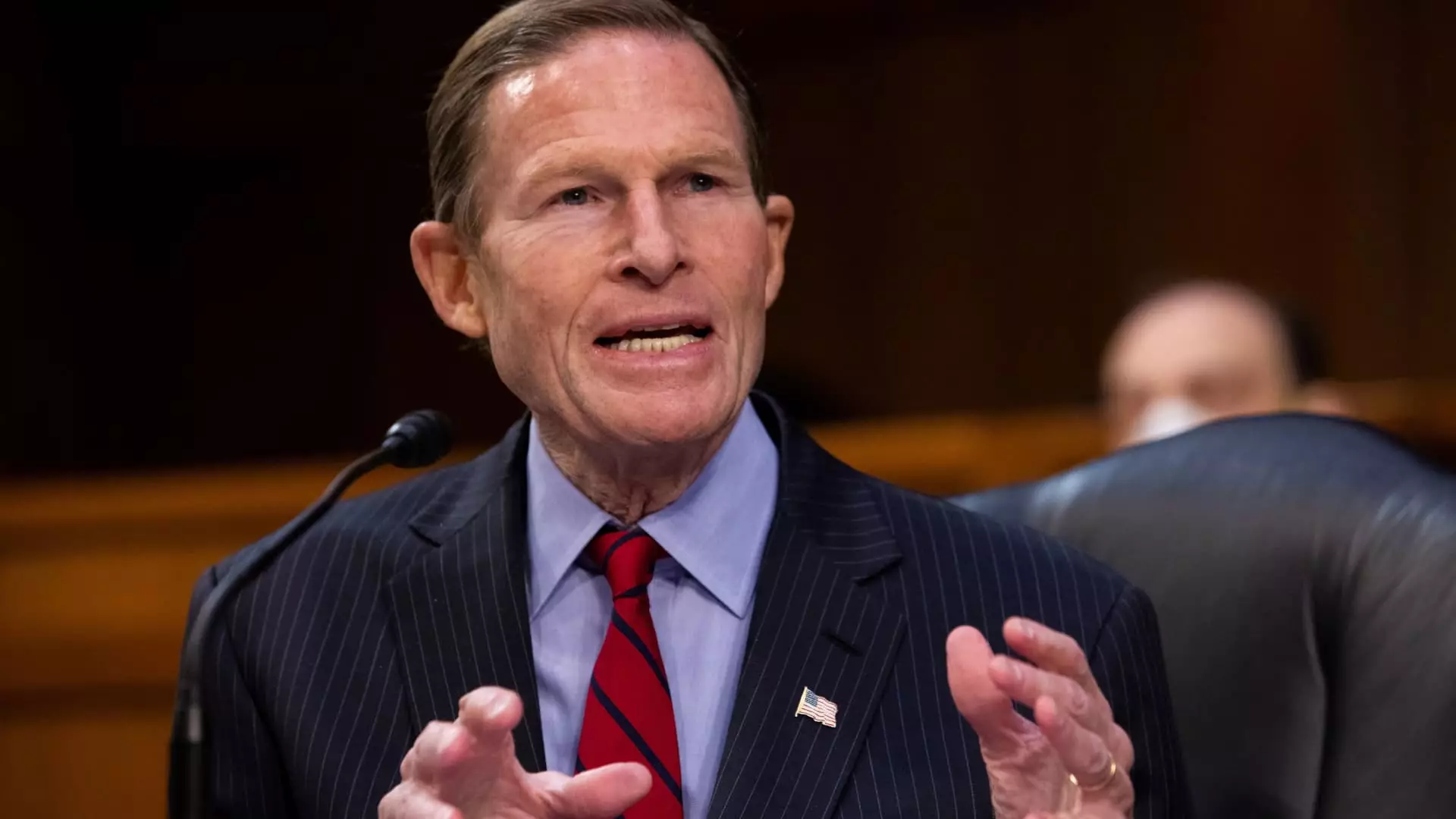In the ever-evolving space of financial technology, few transactions have raised as many eyebrows as Visa’s impending partnership with Elon Musk’s social media platform, X, previously known as Twitter. The Senate’s recent inquiry led by Senator Richard Blumenthal has shed light on a labyrinthine of ethical dilemmas lurking beneath the surface of this high-stakes collaboration. As our society embraces a digital wallet future, it’s time to interrogate whether we are placing our trust in the right hands. The unsettling nexus of social media, finance, and questionable governance dimensions calls for an urgent reevaluation of this arrangement.
Musk’s Shadow Looms Large
Elon Musk has become a divisive figure, stirring excitement and anxiety in equal measure. The crux of Blumenthal’s argument circles back to Musk’s controversial leadership in what he termed the “Department of Government Efficiency” and the significant cuts made to the Consumer Financial Protection Bureau (CFPB). These actions, which ostensibly aim to reduce regulatory burdens, could potentially compromise consumer protection at a time when wellbeing is more precarious than ever in the financial landscape. The consumer watchdog, established to shield everyday Americans from financial deception and fraud, now appears to face an existential threat under Musk’s influence.
Blumenthal’s correspondence identifies a potential conflict of interest where Visa, the behemoth of global payment systems, might be unwittingly enabling a regime conducive to predatory practices. Without the appropriate safeguards, the prospect of scams and fraud proliferating on X as it delves into financial services becomes disturbingly plausible. To say that Musk’s history of erratic management styles raises alarms would be an understatement.
The Price of Innovation vs. Ethics
As technology accelerates at dizzying rates, the tension between innovation and ethical considerations intensifies. Visa, as the world’s largest credit card network, has a significant legal framework to navigate that includes stringent compliance against fraud, money laundering, and financing illicit activities. While the allure of integrating peer-to-peer payments seamlessly into a social media interface is intoxicating, it also flickers red flags that demand scrutiny.
What happens when a platform, plagued by bots, scams, and an increasingly toxic environment, becomes a conduit for financial transactions? The inherent risks of a digital wallet situated within an ecosystem already marred by distrust raise questions about the actual motives behind this collaboration. Is this an ambitious leap forward or a naive leap into uncertainty?
The danger lies not just in scams proliferating unchecked but in the broader societal implications of allowing a flawed social media network to venture into uncharted financial waters without rigorous oversight. The potential for misuse of sensitive consumer data and the stockpiling of trade secrets could redefine the boundaries of ethical business conduct.
The Call for Accountability
Blumenthal’s call for comprehensive documentation from Visa regarding this controversial partnership is more than a mere inquiry; it’s a clarion call for accountability in a domain where the barriers between finance and social media continue to dissolve. The senator rightfully demands clarity around Visa’s compliance protocols and its strategies for ensuring that its monumental financial machinery does not inadvertently facilitate illicit activities.
This isn’t merely a regulatory concern; it’s about corporate moral responsibility in an age dominated by big data and social influence. Visa’s next moves will be closely scrutinized, and the implications of failing to address these inquiries could bring far-reaching consequences not just for the company but for consumers relying on that infrastructure. Trust, once broken, is exceedingly difficult to rebuild.
The Path Forward: A Collective Responsibility
Navigating this uncharted terrain will require a collaborative effort from tech giants, regulatory bodies, and, crucially, consumers themselves. Tech firms must not only prioritize innovation but embed strong ethical frameworks in their business models. For consumers, a discerning approach means understanding the available options and demanding transparency around finances on platforms they engage with.
As this saga continues to unfold, vigilance must remain at the forefront of public discourse. Constitutional responsibilities of corporations must be revisited to ensure they are functioning within a framework that values ethical standards as highly as profits. The stakes have never been higher, and the implications of our choices will echo well into the digital future.


Leave a Reply